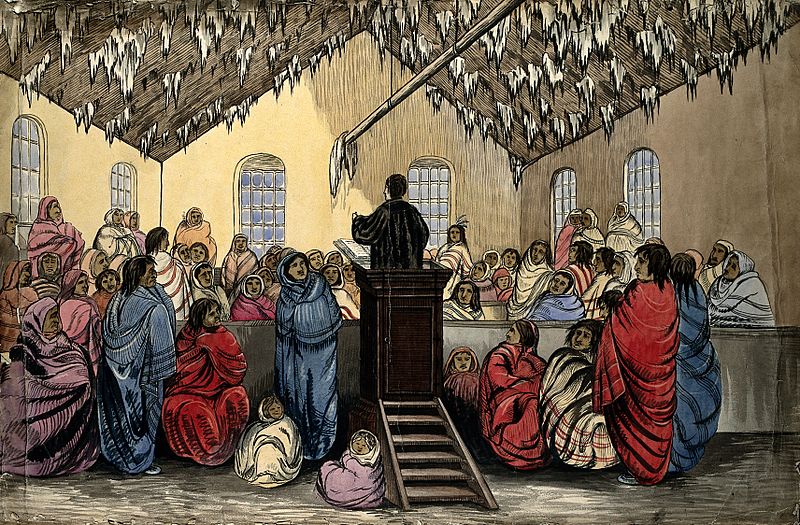 Let me preface my remarks by saying that I am a Seventh Day Sabbath keeper, however, from time to time I hear absolutely terrible arguments from Seventh Day Sabbatarians. I am not talking about debatable points or arguments where reasonable people could come to different understandings, but I mean poor argumentation.
Let me preface my remarks by saying that I am a Seventh Day Sabbath keeper, however, from time to time I hear absolutely terrible arguments from Seventh Day Sabbatarians. I am not talking about debatable points or arguments where reasonable people could come to different understandings, but I mean poor argumentation.
One of these poor arguments came from an Adventist local elder reading the King James Version and it was based on Hebrews 4:8. The Biblical text reads, “For if Jesus had given them rest, then would he not afterward have spoken of another day?”
After reading the text, the Sabbath defender told me, this is the best text I have found against those who would say that the Sabbath has been changed. I then asked the individual, how so? The individual said, “the text plainly says that if the day would be changed from the Seventh Day of the week then why didn’t Jesus tell us of the new day? This is why the ‘Sabbath remains’ in Hebrews 4:8 because he didn’t tell them of another day.”
It really looks like the awkward rendering in the KJV version of the Bible might be tripping up the individual who does not really understand the argument of the book of Hebrews.
The book clearly says that the rest (Sabbatismos) remains. It is also noteworthy that the book says that the Sabbatismos remains while so many other things connected to the Jewish economy has been done away. That is an interesting argument that I think is a strong defense of the validity of a literally keeping of the Sabbath, but that is not the argument presented by the elder.
But simply put, the argument of the elder is that the rest remains because “Joshua (Jesus) didn’t tell them of another day to take the place.” But the book of Hebrews argues that the rest remains because Joshua (Jesus) DID tell of another day, namely the day described as “Today” before this text. But let’s read the text in context.
Context Solves A Lot Of Problems
The first thing I would say about this argument is that one must always look at the text in context. I think it is reasonable to argue that if Jesus had changed the day he would have told us about it. Just because that is reasonable and this text seems to say that does not mean that this text says what we want it to say. It ain’t talking about the change of a day. And furthermore the very argument in the text is that Jesus (Joshua) DID speak of another day.
OK, let us attempt to look at the text. First we must recognize that the name Jesus and Joshua are equivalent names in Hebrew. So it is interpretation to decide whether to interpret this as Jesus or Joshua. But let us go on.
Hebrews 4:1 says the we should fear that a promise of “entering rest” has come to us and we don’t go into it. We are told in Hebrews 4:2 that the promise was preached to the readers of Hebrews as well as the ancient Isrealites to enter the rest. The ancients didn’t, according to Hebrews 4:2, didn’t have faith.
Now Hebrews 4:3 makes the argument that we today enter that rest by faith. In Hebrews 4:4-5, the author quotes that God rested on the Seventh day. The author then quote that it is still possible to “enter into God’s rest.” In Hebrews 4:6 the author then argues that because the ancients didn’t enter then the “rest” still needs to be entered into.
In Hebrews 4:7, the author now quotes Joshua, “Today if you hear my voice harden not your heart.” This is proof to the writer that the “day” to enter into rest “still remains.”
Then comes our text. In Hebrews 4:8, the author argues, “If Joshua (Jesus) had given them rest, then why did he talk about another day.” Namely the “Today” when we all must come to Jesus and accept the salvation that he has provided.
So the author concludes in Hebrews 4:9, “therefore a rest remains for the people of God.” So The author is arguing that because the Bible writer spoke of another day to accept this rest, then the acceptance of that rest is still applicable to us.
The Text Says The Opposite
Turning back the page. So the text says the very opposite of what the one who is arguing is saying. But what is interesting however is the nature of this “rest” and what it means. I will get back to that at some point, but my point in this article is that context is everything. Don’t argue any point simply becuase you heard someone say it in a pulpit or anywhere else. Read the text yourself!!
Now in case you think I am playing with the text, read the text in another translation, which is always a good step. If the original person had read the text in a translation that she or he understood there would have been no difficulty. Please note how it is written in the NIV Hebrews 4:7-8
7 God again set a certain day, calling it “Today.” This he did when a long time later he spoke through David, as in the passage already quoted:
“Today, if you hear his voice,
do not harden your hearts.”[a]
8 For if Joshua had given them rest, God would not have spoken later about another day.
Conclusion
It is important that we use good arguments for whatever position we hold. If someone had read the text in context they would be less likely to hear what you have to say about this and other issues in the future. We all make mistakes, and I know I have as well, so let us move forward from where we are to where we should go.



